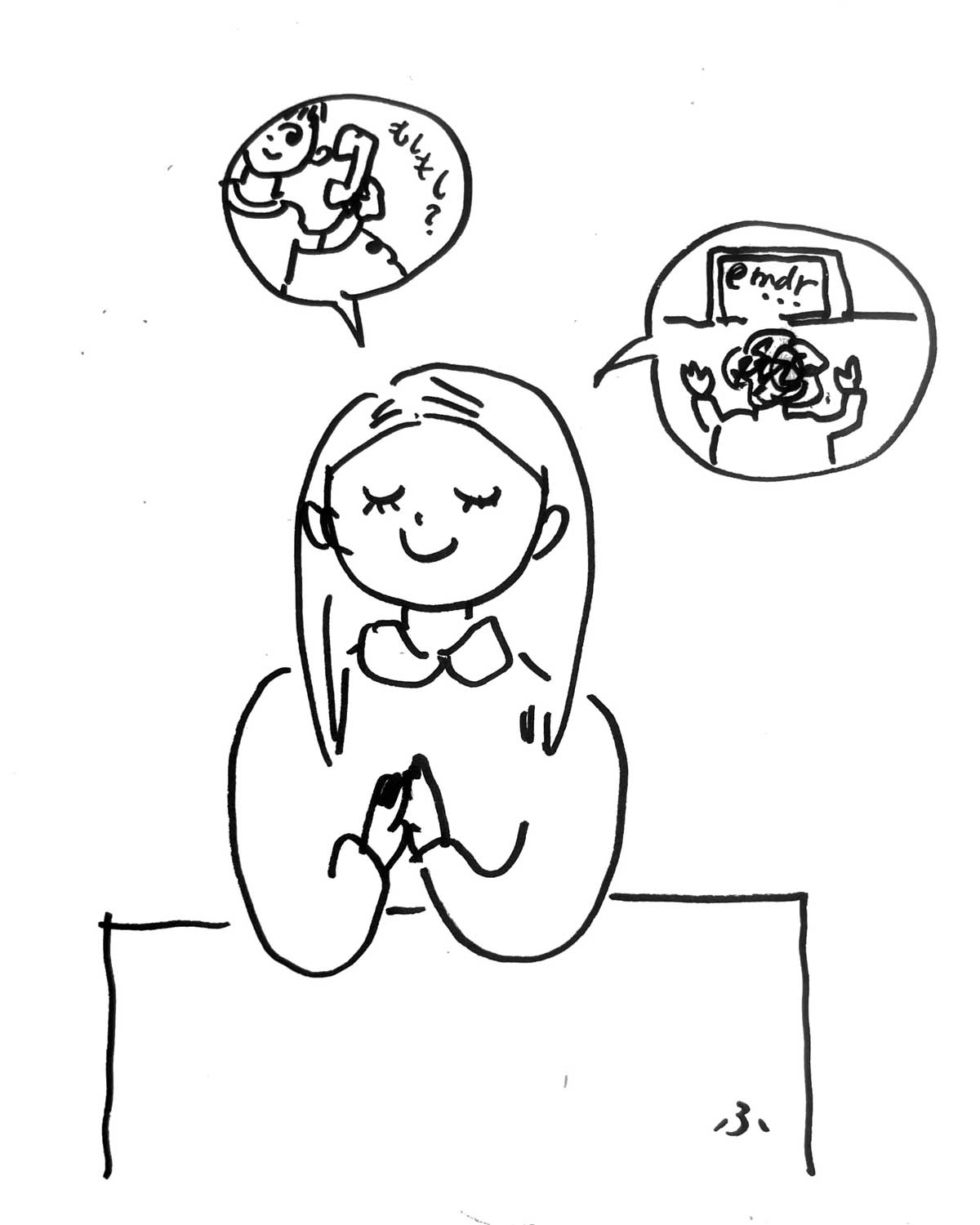Today, I’m thrilled to be launching this website, a project that I embarked on over two years ago.
Now, you might be wondering, why did it take me so long to get here? Well, the simple answer is that there were no good reasons for the delay. Life, as it often does, throws its share of obligations and challenges your way. Yet, if I’m truly honest with myself, I had lots of time that I didn’t make a good use of. I took frequent breaks or found more appealing or easier-to-complete tasks to fill my time. Little did I know that I was sinking deeper into this abyss, making it increasingly difficult to muster the motivation to tackle this project.
This story highlights something crucial about our mental health. Sometimes, it deteriorates gradually and quietly, like a slow erosion. We may not even realize it’s happening until we feel completely out of control. If that sense of helplessness persists or recurs frequently, it’s a signal that it’s time to seek help, whether that’s talking to a friend, a family member, a therapist.
And so, I did just that. I vented out my self-pity to people around me. Each time, I received different types of responses, like “Just pay someone to build your website,” “No one cares about that detail (like the site design and contents that I was stressed out about),” and even “Do you really need a website?” Many reassured me that the design wasn’t as critical as having essential contact information available. Sometimes, I embraced their suggestions and adjusted my approach accordingly. At other times, I pretended to heed their advice but failed to follow through or, in some cases, did the exact opposite. Interestingly however, these conversations often triggered subtle changes in my perspective, even when they initially seemed inconsequential.
This process of “talking to others” is, in fact, one of the techniques in Cognitive Behavioral Therapy (CBT), often referred to as “Disentangling Your Thoughts” or “Untwist Your Thinking.” Essentially, it involves challenging and reframing our negative thoughts by seeking external input and different perspectives. It’s a powerful tool, and we often practice without realizing it.
But first, let’s delve deeper into how my thinking brain was losing its flexibility, causing me to experience what’s called Distorted Thinking (Cognitive Distortion, a.k.a. Hyperactive Protective Thinking Patterns). Because if you don’t catch your Distorted Thinking, you won’t be able to disentangle them. ***We were not born with Hyperactive Protective Thinking Patterns; we might have learned them somewhere, from someone, and been practicing them without awareness. (EMDR Intensive may provide deeper insight into the origin of those thinking habits.)
Cognitive distortions are internal mental filters or biases that amplify our distress, intensify anxiety, and contribute to negative self-perception. The human brain consistently processes a vast amount of information, prompting it to adopt shortcuts in an effort to alleviate mental load. While some shortcuts prove beneficial, the presence of detrimental cognitive filters, as discussed here, can lead to adverse consequences rather than positive outcomes.
Navigating Unhelpful Thoughts and Why They Sneak In
Ever caught yourself in a loop of negative thoughts that just won’t quit? Well, you’re not alone! This kind of repetitive thinking, known as rumination, is a common companion in the world of mental health. It’s not just reserved for those with a specific diagnosis – most of us do it to some extent, especially when faced with life’s challenges (or even after events ended, in some cases. EMDR can be considered for those situations).
You know how sometimes you try to figure things out in your head, hoping to find a solution or some insight? That’s pretty normal. But here’s the catch: when those sneaky cognitive filters get in the way, that thinking can take a turn for the worse. It might end up becoming counterproductive, making those gloomy feelings even more intense, especially if you’re grappling with issues like depression.
So, these unhelpful filters not only add an extra layer of stress to life’s ups and downs but can also make it trickier to see the sunny side.
What are unhelpful cognitive distortions?
Here are the main cognitive distortions, with examples of my own and my clients who gave me permission for their quote to be listed on this page.
- All-or-nothing (or black-and-white) / Polarized thinking
- “(I still do not have a website.) I’m a complete failure.” “I never finish anything.”
- Overgeneralization
- Drawing overly broad conclusions based on limited or specific instances.
- “(After a friend disappoints you) I can’t trust anyone. People always let me down.”
- “(My last girlfriend cheated on me.) I will probably always be cheated on.” can become “Every girl I date will eventually cheat.” then “All girls cheat.”
- Mental Filter
- You pick out a single negative detail and dwell on it exclusively so that your vision of all reality becomes darkened.
- “(I burnt my turkey.) I’m terrible at cooking.”
- Jumping to Conclusions (or Mind Reading)
- “(I saw my friends standing around and thought) They don’t like me.”
- Magnification and Minimization (magnifying the negative, minimizing the positive)
- “(I spilled a drop of coffee on my shirt.) Everyone will think I’m a total slob.”
- “(I ate three meals today.) It was only because I was with my friend.”
- Fortune-telling
- “I know I’ll mess up the job interview.”
- Comparison
- (comparing just one part of your performance or situation to another’s, which you don’t really know, so that it makes you appear in a negative light)
- “All of my classmates are happier than me.”
- Catastrophizing
- (combination of fortune-telling and all-or-nothing thinking; blowing things out of proportion)
- “I don’t like my tattoo. I ruined my body. I ruined my life. I’ll never find a decent job. I’ll never find a partner.”
- “Should” “Must” Statement
- (using language that is self-critical that puts a lot of pressure on you)
- The emotional consequence is guilt. When you direct ‘should’ statements towards others, you feel anger, frustration, and resentment.
- “I should be losing weight.” / “I should be gaining weight.”
- Labeling and Mislabeling
- This is an extreme form of overgeneralization. Instead of describing your error, you attach a negative label to yourself: “I’m a loser.” When someone else’s behavior rubs you the wrong way, you attach a negative label to them, “They are a jerk.” Mislabeling involves describing an event with language that is highly colored and emotionally loaded.
- “(I didn’t participate in a class.) I’m just not a smart person.”
- “(They cut in line.) They’re selfish jerks.”
- Personalization
- You see yourself as the cause of some negative external event for which, in fact, you were not primarily responsible.
- “The project failed, because of me.”
- Discounting/Disqualifying the Positive
- “I aced the presentation, but it doesn’t count because it was an easy topic.”
Emotional reasoning and not considering the facts
Sometimes, we tend to let our emotions guide our thoughts, shaping our perspective based on how we feel about ourselves rather than relying on actual facts. This means that our emotions can influence our view of a situation rather than thoughts, even when there’s no real evidence to support those emotions. In simpler terms, our emotions can become the lens through which we see things, ignoring any positive information to the contrary. This emotional reasoning often involves other thought patterns, like catastrophizing and discounting the positive.
For instance:
- Feeling like you’re not making progress despite losing (or gaining) weight.
- “I’m a terrible student (despite achieving good grades).” – external pressure, expectation or comparison taints your success.
- “My partner is cheating on me (without any evidence).” – jealousy defines your reality.
- “Nobody likes me (even when you have friends).” –because loneliness shapes your perception.
By catching yourself having these unhelpful cognitive distortions, you can then redirect your thoughts, which I’ll talk more about in my next post.
As I finally launch my website today, I hope the tools I’ve shared can also help you navigate the roadblocks in your life. Remember, it’s okay to seek support and talk to someone when you’re facing challenges. You don’t have to go through it alone. Let’s keep moving forward, one step at a time, and celebrate small progress along the way. Thank you to those who gave me unsolicited advice. And, I thank you for stopping by.
With gratitudes,
Fusako
P.S. Special thanks to the following wonderful professionals!

